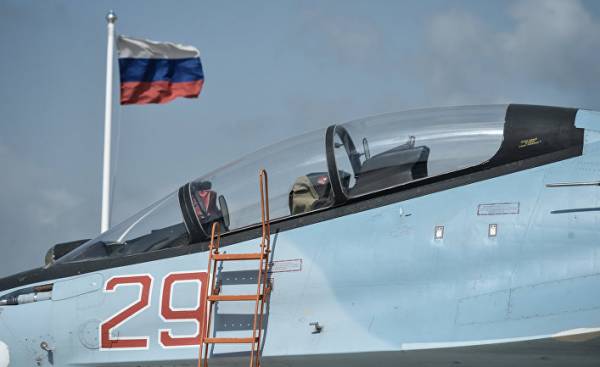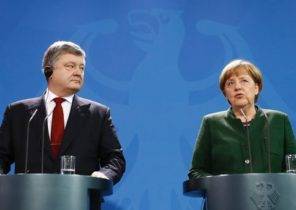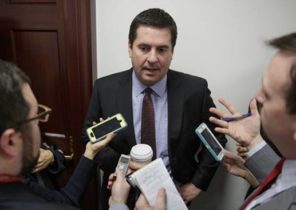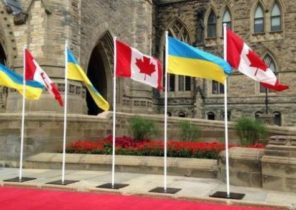
Relations between Moscow and Washington continue to deteriorate for a number of positions. Contrary to expectations, Americans support a more conciliatory policy towards Russia (while others experience fear and feel the need confrontational approach), a strained relationship during the reign of the Obama administration not warmed after coming to the White house of Donald trump. The new President departed from their made during the presidential campaign of 2016 statements that he will reconsider the economic sanctions imposed by his predecessor after the Russian annexation of Crimea and Moscow’s support for separatist forces in Eastern Ukraine. Not only the administration had made changes to their policies, but Congress is now in a militant anti-Russian mood. The Senate just 98 votes to 2, imposed additional sanctions against Moscow in response for an anticipated Moscow’s intervention in the American elections in 2016. This vote was preceded by a stream of angry condemnation of Vladimir Putin and Russia’s behavior in General, and this topic for several months as major media. Russian officials with increasing indignation and irritation respond to the growing hostility of Washington.
One question, on the question of Syria, tensions in bilateral relations especially increases to alarming levels. This hostility evolved over the years. The staff of the Obama administration openly supported the rebels, in an environment which was dominated by Sunnis. These groups for the past almost six years of fighting, the purpose of which is the removal from power of the religious minority regime of Bashar al-Assad (alawites, Druze and Christians). Moscow is deeply outraged by the position of the United States because the Assad family has long been Russia’s geopolitical client. After lasted for more than four years of outrage and anger about the invasion of Washington in the country, which the Kremlin regards as a legitimate part of its sphere of influence, Putin in 2015 deployed in Syria armed contingent to protect the embattled Assad government. Because at that time the us military has been operating in Syria and provided assistance to selected rebel groups, a move that has created an inherently dangerous situation.
And she becomes more threatening. The latest incident occurred just a few days ago, when an American plane shot down a fighter jet of Syrian government forces attacked the United States supported the rebels. Moscow in the answer has declared that she now will be treated as targets of coalition aircraft, including us aircraft operating in Syrian airspace. This step had not enough in order to be perceived as the intention to shoot down any aircraft that, in the opinion of Russia will be a danger to the Russian forces or their Syrian allies. The threat of a direct military confrontation between the United States and Russia concerning Syria is already the snake had ceased to be a figment of paranoid imagination.
Currently, there are two conflicting policies in relation to the bloody Syrian civil war. The agenda of the Moscow quite Frank, though a bit cruel. The decision to send Russian armed forces in the conflict zone, confirmed Moscow’s determination to support the Assad government. Russian is concerned with two hazards that may arise in the event of the ouster of their besieged client. One risk is that Washington may become the leading external player in Syria, which would negate the Russian influence in this country and throughout the middle East. Another well-founded concern is that radical Islamic elements can occupy a dominant position in the government to be formed after Assad’s departure. Such a scenario will increase the overall terrorist threat and strengthen Muslim groups in the Russian near abroad (especially in the Caucasus and Central Asia) and even within Russia itself. American leaders, to put it mildly, quite concerned about the problems of Moscow. However, Russian policy in Syria is clear and consistent, whereas the American policy is a controversial and inconsistent chaos. The Obama administration has made it clear that Bashar al-Assad cannot be part of a future Syrian government. Initially, the administration of the tramp, it seemed, was inclined to reconsider this approach. Secretary Rex Tillerson originally gave to understand that Washington no longer calls for the resignation of Assad. However, just a few days was made a chemical attack on the rebel-held city. Trump immediately blamed Assad’s forces (despite contradictory evidence) and ordered to strike with cruise missiles at Syrian airbase, which, according to Washington, was produced by this attack. Then Tillerson said that Assad must resign before any political settlement (in fact, we are talking about going back to Obama’s policy), but a few days later he said that the administration’s policies trump has not changed, and regime change is no longer a part of the agenda. At this point, you can forgive astute observers, if they were completely confused.
This is not the only evidence of the inconsistency of us policy toward Syria. Washington’s attempts thus to establish the support that emphasizes the so-called Syrian moderates, lead to many embarrassments. The program of the Obama administration in identifying and training moderate militants turned into a fiasco in the amount of $ 500 million to prepare managed a few fighters, most of which was immediately captured by the enemy or surrendered themselves to them. Other such attempts were not much better. Once supported by the CIA group, apparently, clashed with another group, which is supported by the Pentagon. And recently, Washington was faced with a dilemma, and it happened at a time when NATO member Turkey attacked the Syrian Kurdish groups, which with American help lead the fight against the Islamic state (banned in Russia organization).
Russia especially puzzled by the flirting of Americans with such groups, which are very far from being considered the secular and moderate. One of them is the al-Nusra Front, which at the time was a branch of “al-Qaeda” and Syria. Former CIA Director David Petraeus (David Petraeus) came out openly in support of military cooperation of America with this organization. Other de facto allies of America show a lot of signs that they are Islamists, not the moderate — even with the wide interpretation of the last term. Anger Moscow have reached a new level over the last few weeks, when the United States began airstrikes in the South-Eastern part of Syria by militias allied to the Assad regime. Russia claims that these groups are fighting with the Islamic state and other militant groups, while Washington’s actions play into the hands of Islamic terrorists. Both the Kremlin and the White house should take serious steps in order to defuse the growing tension, and it must be done before catastrophic consequences of a collision which can occur between American and Russian forces in Syria. The major changes will have to take the American side.
The United States must reckon with opinion of Russia regarding policy toward Syria. Moscow has much more important interests in the field of security in Syria and throughout the middle East. The Northern part of Syria located only 1,000 kilometers from the Russian borders. And from America, Syria is at a distance of 10 thousand kilometers. In the process of changing its position taking into account the interests of Russia Washington could also shift the responsibility and risks for the Kremlin.
Doubt such option, in which some kind of external force can, in fact, to put an end to the war in Syria, not to mention the rebuilding of a stable and United country. This kind of interference is only caused resentment and retaliation by terrorists. Better that Russia will take the risk and negative consequences of geopolitical intervention than the United States. Syria could become another Afghanistan for Russia. It would be a tragedy, but it is more preferable for Syria than become another Vietnam or Iraq for the Americans. A continuation of the United States intervention in Syria, of course, not worth it to become a pretext for a new cold or perhaps even hot — war with Russia. However, our government goes on this risky path.







